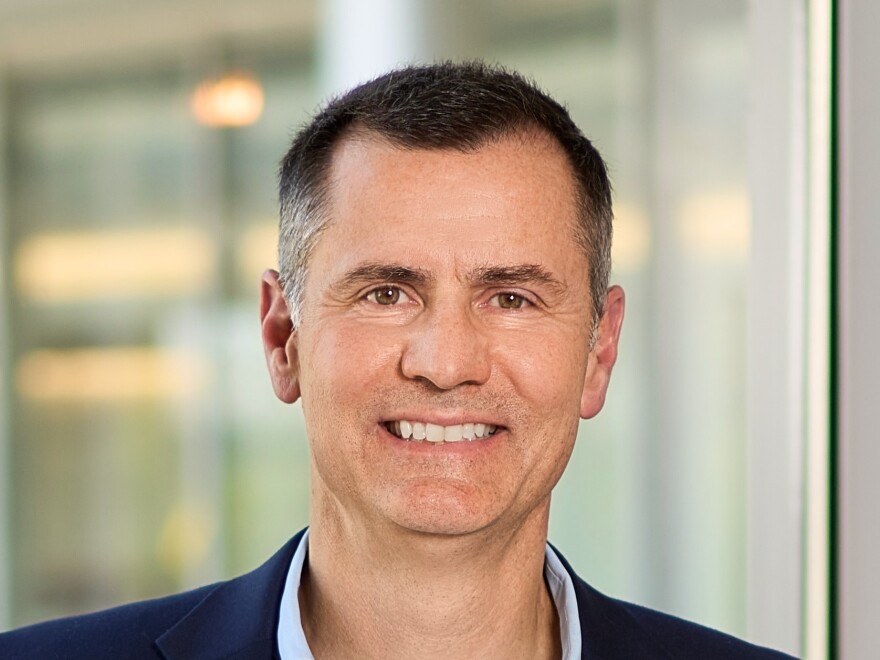The University of Virginia has named Mark Esser as the first chief scientific officer of the upcoming Paul and Diane Manning Institute of Biotechnology.
Esser will work with scientists to accelerate the development of new medicines and treatments for illnesses like cancer and Alzheimer’s.

Morning Edition Host Phil Liles spoke with Esser about his desire to turn a corner on incurable diseases, which he noted, requires significant federal funding. That funding is now uncertain as President Donald Trump halts $1.8 billion dollars in grants from the National Institutes of Health.
This interview has been lightly edited for clarity and style.
Phil Liles: Tell me about the new Manning Institute of Biotechnology and what kind of work will be done there.
The Manning Institute for Biotechnology is really going to be a catalyst for innovation here in Virginia and the country, and hopefully the world. It really has two key missions: to train and develop the next generation of scientists and physicians and medical leaders, and to transform some of the exciting scientific discoveries into new medicines and treatments.
The institute is going to focus on a couple key areas: neurodegenerative diseases like Alzheimer's and Parkinson, trying to find new therapies and cures for cancer, and continuing to find new and better treatments for autoimmune diseases.
The institute will work on everything from genomic medicine to cell therapies and cutting-edge biologics.
Are you still on track to open in late 2026?
From what I've heard, it looks a little bit more like 2027. The institute is going to be 350,000 square feet, four stories, and will house some of the most cutting-edge and leading technologies in the laboratories — to not only do that basic research, but actually to manufacture some of those medicines that can be tested in clinical trials.
What do you hope to accomplish?
Coming back to those two missions: working with young investigators, scientists and physicians to get them excited about the drug discovery and development process, and then to actually discover and develop some new medicines that can really transform and improve people's lives. I would just be thrilled that, as a crowning accomplishment of the institute, we could point to new medicine.
As you know, the National Institutes of Health is clawing back grants that fund scientific research. Will this impact your research? And if so, how?
It’s kind of too early to tell, to be honest. The University of Virginia is continuing to monitor all the actions and policies coming from the federal government, and will continue to do that, and work closely with policymakers and our funders at the NIH.
How do you see the cuts impacting the industry as a whole?
Again, kind of too early to tell, but that funding from the NIH to fund basic research is truly foundational. That new knowledge that comes from basic research is what fuels the whole drug discovery and development paradigm and industry. So that funding is critical to not only fund that research, but train and develop new scientists and physicians.
Could it lead to the private sector taking on more of the research load?
Certainly, the private sector can lean in to help fund some of this research. More likely, what the private sector is good at doing is partnering with academics and places like the Manning Institute to accelerate the development of those discoveries and new molecules to become medicine.
We hope the Manning Institute will be a catalyst for that — that we’ll attract outside investment in partners, both in the biotech industry and the larger pharmaceutical industry.
Is there anything else that we can add to this conversation that you think folks should know about?
It's not just about the academic research and developing the medicine, but we really hope to put Virginia on the map as a key biotech ecosystem. We'd love for Charlottesville and Virginia to be kind of the Silicon Valley for biotech.
Dr. Esser, thank you so much for taking the time to speak to me this morning.
Oh, my pleasure.



